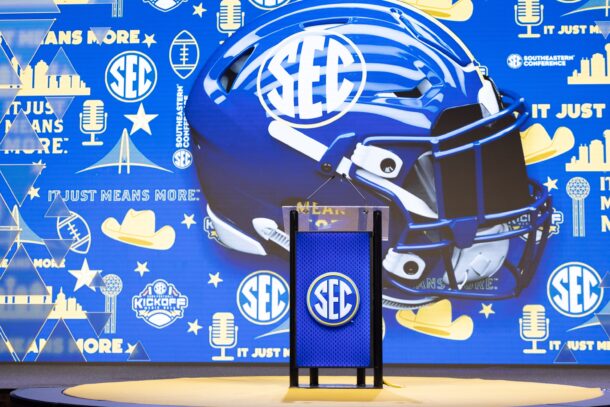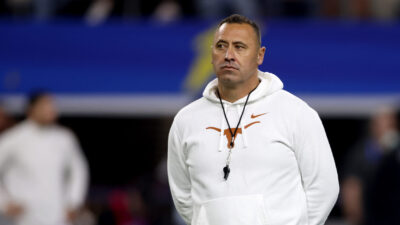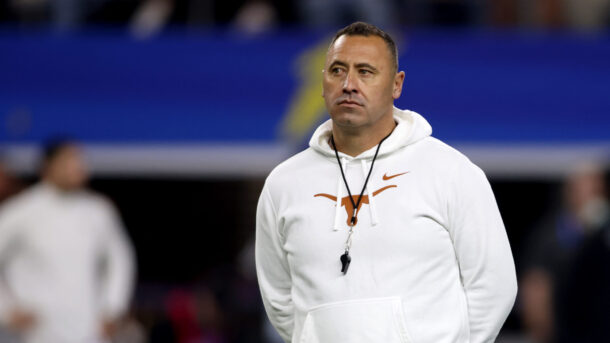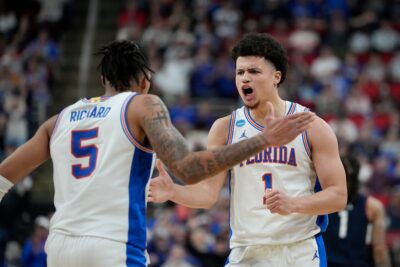Ad Disclosure
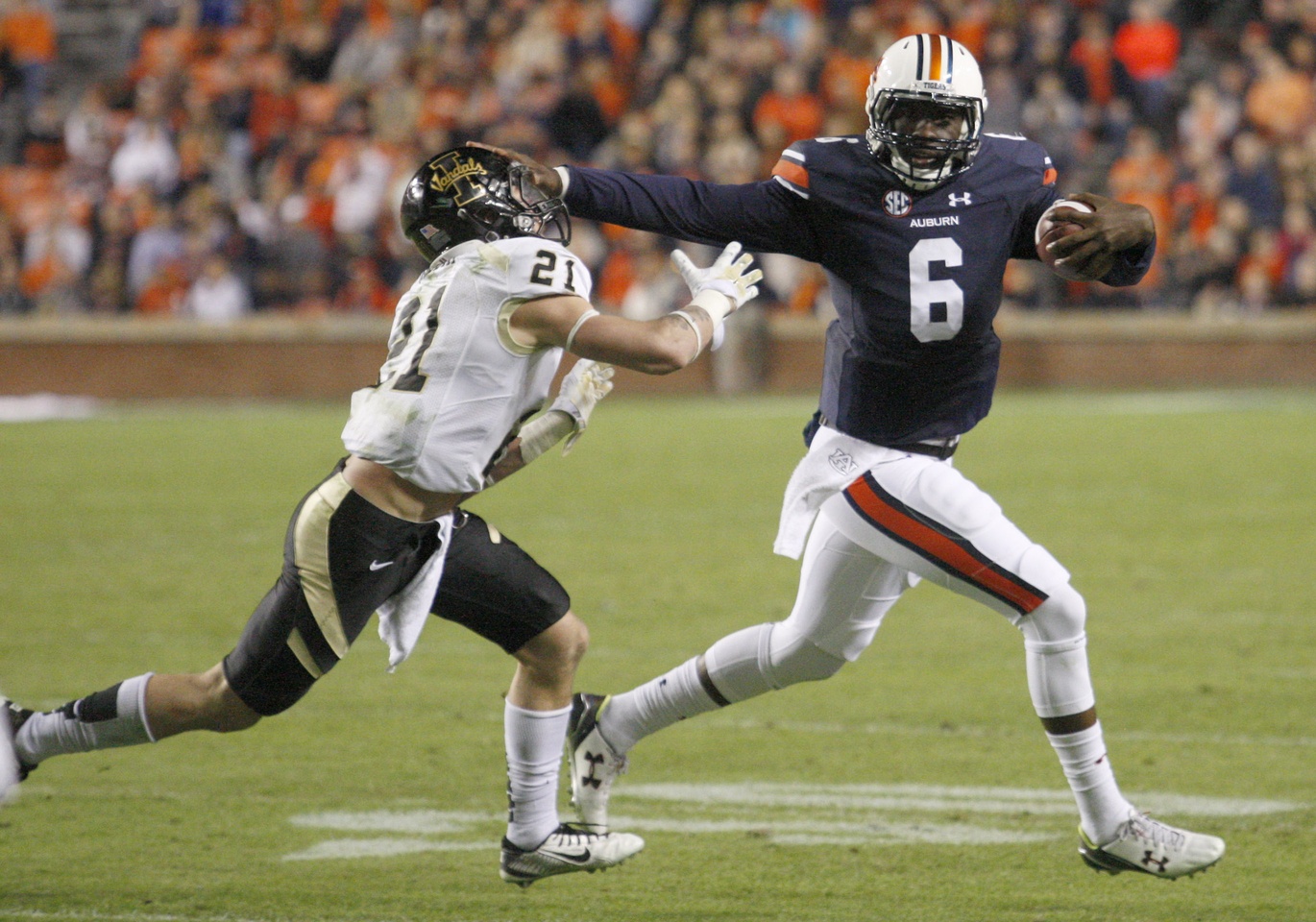
We now know that Alabama running back Derrick Henry is the only SEC player that finished in the top 3 in the Heisman voting. He’ll be in attendance later today as they give out the award, which he’s the favorite to receive.
But let’s look back at the eight players who received Heisman odds from the sports book Bovada prior to the 2015 season.
One of the eight (Nick Chubb) suffered a season-ending injury. Others, like Dak Prescott, Laquon Treadwell and Leonard Fournette, had amazing seasons but weren’t deemed Heisman-worthy by the voters. Still others were awful, to be blunt, like Auburn’s Jeremy Johnson.
Here’s a look at the eight SEC players thought to be Heisman contenders before the season, and how their years turned out.
T1. Auburn QB Jeremy Johnson (+1200): If you can only blame one player for the Tigers failing to get within the same zip code of preseason expectations, it probably is Johnson. He didn’t run the ball like Cam Newton or Nick Marshall. But that was expected. At 6-foot-5 and 240 pounds, having spent years in coach Gus Malzahn’s offensive system, Johnson was supposed to stand in the pocket and shred defenses.
Instead, he played as if defensive opponents were invisible to him, throwing 6 interceptions in his first three games. Auburn went 2-1 with a 24-point loss at LSU and an overtime win against FCS school Jacksonville State. The would-be Heisman contender threw just three passes in the next five games. He played better in November, accounting for 6 touchdowns against just 1 interception. But he never reached 200 passing yards against an FBS opponent.
Auburn’s offense just isn’t effective without a good quarterback — especially a quarterback that makes defenses respect his ability to tuck and run.
T1. Georgia RB Nick Chubb (+1200): He suffered a gruesome knee injury against Tennessee on Oct. 10 and missed the rest of the season. In a cruel twist, his box score against the Vols reads 1 carry for 2 yards, which snapped his 13-game streak of at least 100 rushing yards. If you prorated his first five games for an entire season, Chubb would’ve rushed for 1,788 yards and 17 touchdowns. That would’ve put him in the neighborhood of Leonard Fournette and Derek Henry, and we would’ve been asking whether this was the greatest trio of running backs in one conference in one season in college football history.
Had he stayed healthy, though, Chubb would’ve contended with ever-increasing attention, as the Georgia quarterbacks and offensive line played progressively worse after his injury. (Maybe the two events were related.)
T1. LSU RB Leonard Fournette (+1200): Entering November, Fournette was the clear favorite to win the Heisman Trophy. All he had to do was not implode against Alabama, and help LSU at least contend in the SEC West through the last week of the regular season. Well, he did implode, rushing for just 31 yards against the Tide. When the Tigers lost three consecutive games, it didn’t matter at all that Fournette bounced back immediately, producing more than 500 yards of total offense in his final three contests.
4. Mississippi State QB Dak Prescott (+1600): His team got ransacked like no other in the offseason due to graduation and the NFL draft. Still, Prescott managed to keep the Bulldogs relevant and sniffing the top 25 until the end of the regular season. He sliced his interceptions from 11 to 4 despite throwing 39 more passes behind a weakened offensive line, a lesser running game and a defense that wasn’t as good. His own rushing numbers dipped as well, though he managed a third consecutive season with double-digit rushing touchdowns.
Prescott had yet another tremendous season, arguably the best by any SEC quarterback in 2015. But neither his performances nor those of his team were good enough to make him a Heisman Trophy finalist.
5. Alabama RB Derrick Henry (+2500): Before the season, I wrote that Henry needed four things to happen to win the award: 1) rush for at least 1,600 yards, 2) score a bunch of touchdowns, 3) luck out with some of the top-billed quarterbacks and 4) earn a lion’s share of the credit for Alabama’s offensive success. He checked all those boxes and then some. The most remarkable aspect of Henry’s season, for me, was his 90 carries in the final two games. I have not been able to verify this, but I daresay that has never been done in the history of college football.
Not as flashy as Fournette or Chubb, the word “relentless” comes to mind to describe this 6-foot-3, 242-pound back. He’ll be the favorite to win the Heisman when the votes are revealed later today.
6. Tennessee QB Joshua Dobbs (+5000): Dobbs as a part of the Heisman Trophy conversation in 2016 is not all that farfetched, but it just wasn’t to be this year. First, Tennessee lost four games in which it led in the second half, including to a pair of College Football Playoff teams. The Vols were just a few plays away from a top 10 ranking that almost is a prerequisite for Heisman winners these days. Second, Dobbs did not make much of an improvement as a passer. His completion rate and yards per attempt went down, even though he took better care of the football.
Dobbs rushed for 9 touchdowns on fewer carries than Dak Prescott. If he can solve himself as a downfield passer prior to 2016, perhaps we’ll see him blossom into a true Heisman contender, but time is running out.
T7. Ole Miss WR Laquon Treadwell (+10000): A Biletnikoff Award finalist as one of the nation’s best receivers, Treadwell did his part when given the opportunity. He was the SEC’s only 1,000-yard receiver and arguably the most NFL-ready wideout in all of college football.
Still, the Rebels did not win enough games to thrust a receiver into the Heisman Trophy conversation. And despite playing within one of the more free-wheeling offenses in the SEC, Treadwell’s numbers just weren’t as eye-popping as some of the players from other schools. He finished 25th in the nation in catches, 23rd in receiving yards and tied for 28th in touchdowns.
T7. Tennessee RB Jalen Hurd (+10000): If anyone can approximate Derrick Henry in the SEC in 2016, it’s Hurd. The man runs HARD. He arguably had the best game against Alabama’s vaunted defense, carrying 18 times for 92 yards and 1 touchdown. At 6-foot-4 and 240 pounds, he proved durable and consistent.
As Tennessee’s offensive line improves, Hurd will be able to make a real run at the SEC rushing title in 2016. His 1,158 rushing yards on what was just an OK offense otherwise probably aren’t getting enough respect around the SEC. But he didn’t quite have the kind of season that would make him a fixture in Heisman conversations.
An itinerant journalist, Christopher has moved between states 11 times in seven years. Formally an injury-prone Division I 800-meter specialist, he now wanders the Rockies in search of high peaks.
